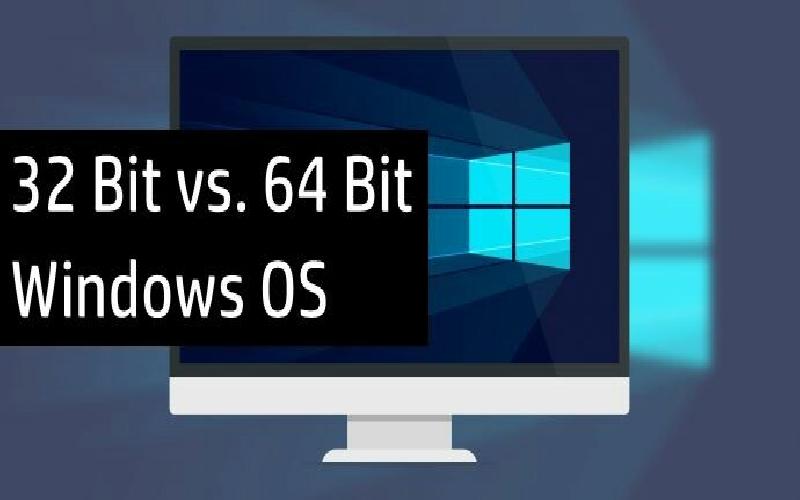What Is the Difference Between 32-bit and 64-bit Windows operating system?


This article will discuss the differences and uses of a 32-bit and 64-bit Windows Operating System.
Hi there everyone this is Jonathan. I am back again with another informative article to share with you guys. Today I will discuss about the 32-bit and 64-bit versions of Microsoft Windows Operating System.
In this articel I will not this discuss the detailed technical differences of 32-bit and 64-bit versions of Microsoft Windows Operating System.
I will only discuss here their differences that matters to most of the computer users and what it does to their computers and how it affects their usage.
Today most computer users (be it a laptop, a desktop, a notebook, a netbook, or a surface) that are not technologically savvy have no idea that they are likely be using a 32-bit or 64-bit of Windows operating system.
Now, what is a 32-bit and a 64-bit you may ask? A 32-bit or 64-bit is an architecture wherein a Microsoft Windows Operating is being written or programmed by their engineers. Those two have different kinds of functions and different kinds of performance.
In computer architecture a 32-bit is logically a 32-bit integers, instructions, memory address (I am talking about RAM, not the memory storage that we are accustomed to when we are talking about SD cards on a smartphone or flash drive in a computer).
Basically the main difference of the two is their computing speed and capability. 64-bit is much faster than 32-bit. But it "sometimes" depends on how much RAM is installed on your machine.
But given with a 64-bit of Windows and processor you will have the capability to install more than 4GB of RAM or more.
Whereas a 32-bit can only accomodate a 4GB of RAM but it will only read 3.2GB of RAM when you take a look at your control panel.
If you are going to buy a laptop, a desktop, a netbook, or a notebook if you notice that the RAM being offered or installed on the computer that you are going to buy is more than 4GB then it is a 64-bit computer with a 64-bit version of Windows and a 64-bit model of processor installed.
Basically if you are going to assemble a computer bear in mind that you cannot install a 64-bit version of Windows on a 32-bit model of processor or CPU (central processing unit). Processor is the customary name of CPU in the world of I.T. professionals.
But you can install a 32-bit version of Windows on a 64-bit model of processor. And you can install both 32-bit and 64-bit version of application on a 64-bit version of Windows. Whereas, you cannot install a 64-bit version of application on a 32- bit version of Windows.
To summarize this article, 64-bit will have the edge in speed and performance, 64-bit can accomodate more than 4GB of RAM. You're applications will run much faster with a 64-bit in your disposal.
Just bear in mind again that you cannot install a 64-bit Windows on a 32-bit processor. You cannot install 64-bit applications on a 32-bit Windows.
But, you can install both 32-bit and 64-bit Windows on a 64-bit processor and also you can install both 32-bit and 64-bit applications on a 64-bit Windows.
That's it guys, I hope that you will find this article of mine informative.
This article discusses some of the reasons why the speed of internet gets slower and provides effective ways to increase the speed..
Do you know how to create Linux bootable USB drive on Windows 10? In this software tutorial, you are going to learn to make bootable USB for Linux operating system..
Are you a user of Windows 7 running PC? If you are using Windows 7 running PC and getting the worst performance out of your PC, then you should try these tips for improving performance of your PC..